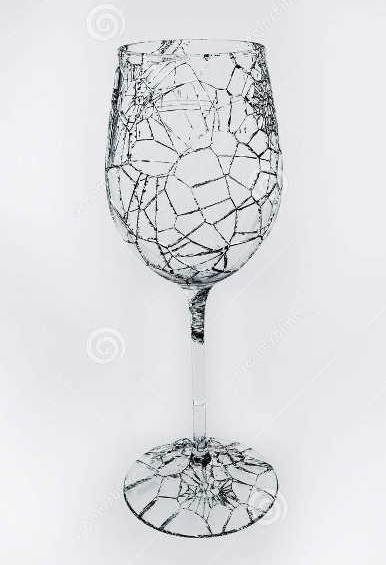FWP:
SETS
EYES {3,1}
WINE: {49,1}
WINE-HOUSE: {33,6}
I agree with Nazm and Faruqi; this kind of thing makes even me tired. If one extreme of classical ghazal style is flat and boring simplicity, the other extreme is this kind of wildly obscure, convoluted, and unrewarding tangle of meanings. What's really remarkable is how rarely Ghalib strays unattractively far toward either end of the spectrum.
Compare {81,6x}, which also features a mū-e shīshah (and which provides more discussion of lines in wine-containers). Like the present verse, that one too features wordplay about breaking that has an affinity with the 'hairline crack'.

Nazm:
The eye that is becoming intoxicated with the wine of coquetry-- if in comparison to it the wine-house would be defeated, then the lines that are in the glass would become eyelashes for the glass, and with that eye the wineglass would see her intoxicated eye and become amazed. So much embellishment [taṣannuʿ]-- and the theme is nothing at all. (216)
== Nazm page 216